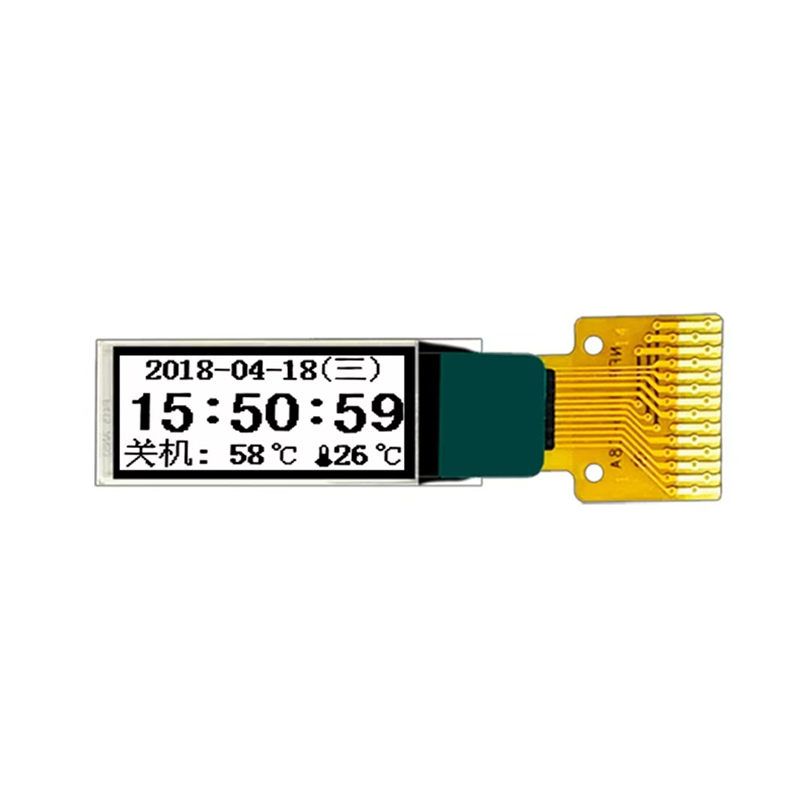
This comprehensive guide explores the world of IPS TFT displays, covering their technology, applications, advantages, disadvantages, and how to select the ideal display for your needs. We'll delve into the technical specifications, comparing different types and sizes, helping you make an informed decision. Whether you're a professional designer, a gamer, or simply looking for a superior display experience, this guide will provide you with the necessary knowledge to navigate the market effectively.
IPS TFT displays (In-Plane Switching Thin Film Transistor displays) are a type of LCD (Liquid Crystal Display) technology known for their superior image quality and wide viewing angles. Unlike other LCD technologies like TN (Twisted Nematic), IPS panels offer a more consistent color accuracy and contrast across a wider viewing angle. This means colors remain vibrant and true-to-life even when viewed from the side.
The most significant advantage of IPS TFT displays is their excellent color accuracy and wide viewing angles. This is due to the liquid crystal alignment within the panel. The in-plane switching allows for better light transmission and less color shift when viewed off-axis. This makes them ideal for applications requiring accurate color reproduction, such as graphic design, photo editing, and video production. Many professional monitors utilize IPS TFT display technology for this reason.
IPS TFT displays often boast higher contrast ratios compared to other LCD technologies. This results in deeper blacks and more vibrant colors, enhancing the overall image clarity and visual appeal. This is particularly important for applications like gaming and video playback where image quality plays a significant role. The better contrast allows for more detail in both dark and bright areas of an image.
While traditionally known for slightly slower response times than TN panels, advancements in IPS TFT display technology have led to significant improvements. Modern IPS panels now offer response times suitable for gaming and fast-paced visuals, minimizing motion blur and ghosting.
IPS TFT displays are extensively used in desktop monitors, particularly for professional applications and gaming. Their color accuracy and wide viewing angles make them an excellent choice for designers, photographers, and video editors.
Many high-end laptops now feature IPS TFT displays to enhance their visual appeal and usability. The improved color reproduction and viewing angles make them ideal for consuming multimedia content and working on visually demanding tasks.
While not as prevalent as in other devices, some tablets and smartphones also utilize IPS TFT displays for a superior visual experience.
The reliability and accuracy of IPS TFT displays make them suitable for various industrial applications, including medical equipment and control panels.
Selecting the best IPS TFT display depends on your specific needs and budget. Key factors to consider include:
| Feature | Considerations |
|---|---|
| Resolution | Higher resolutions (e.g., 4K) offer greater detail and sharpness but require more powerful hardware. |
| Response Time | Faster response times (e.g., 1ms) are beneficial for gaming, reducing motion blur. |
| Refresh Rate | Higher refresh rates (e.g., 144Hz or higher) provide smoother visuals, especially in gaming. |
| Size and Aspect Ratio | Choose a size and aspect ratio that suits your workspace and viewing preferences. |
| Brightness and Contrast | Consider the ambient lighting conditions in your workspace. |
IPS TFT displays offer a compelling combination of color accuracy, wide viewing angles, and excellent image quality. By understanding the features and factors discussed in this guide, you can choose the perfect IPS TFT display to meet your specific requirements. For high-quality IPS TFT displays and other display solutions, consider exploring the options available at Dalian Eastern Display Co., Ltd. They offer a wide range of choices to suit various needs.
1 Data on IPS TFT display technology is compiled from various reputable sources including manufacturer specifications and industry publications.












